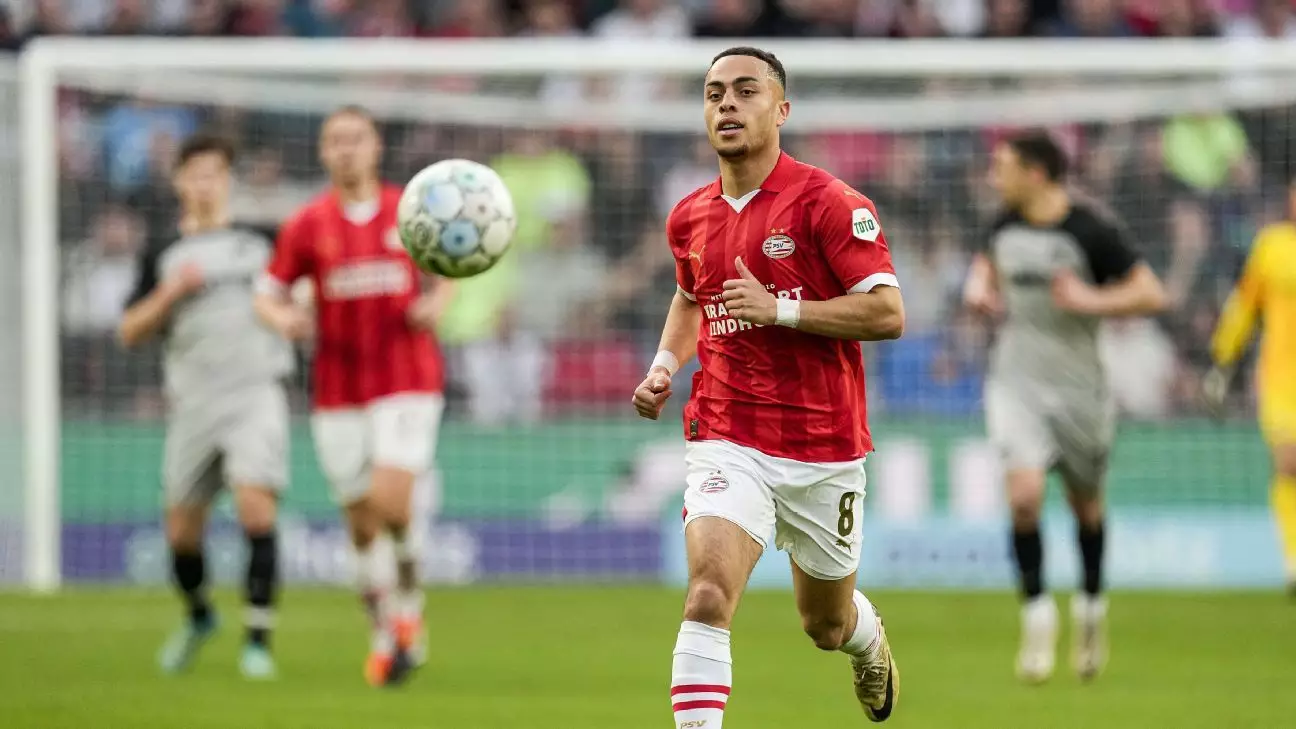Sergiño Dest’s move from Ajax to FC Barcelona in 2020 marked a significant career milestone for the young American full-back. During his tenure at Ajax, Dest had established himself as a dynamic player, capable of making impactful runs and contributing to the attack. However, the transition to Barcelona was fraught with challenges, not least of which was the coaching changes that influenced his development. Under the management of Ronald Koeman, Dest appeared to thrive; he was integrated into a squad that eventually won the Copa del Rey in 2021. Despite this initial success, the arrival of Xavi Hernández as head coach in 2021 altered the trajectory of Dest’s career at Barcelona, leaving him grappling for playing time and a clear sense of direction.
Dest’s criticism of Xavi highlights a deeper issue that often plagues professional footballers: communication between players and coaching staff. The young player has articulated feelings of being misled, emphasizing that he was not afforded the opportunities he believed were necessary to showcase his capabilities. Dest described a disconnect between his aspirations to contribute offensively and Xavi’s tactical limitations, revealing that he felt stifled in a system that demanded a more conservative approach. “I felt like I had to play with limits,” Dest recounted, underlining how this restrictive environment stunted his natural instincts as a player.
The implications of Xavi’s management style extend beyond mere playing time. For any athlete, especially one as young as Dest, confidence is a crucial component of performance. When a player is asked to alter their approach fundamentally, it can lead to self-doubt and hesitation on the field. Dest’s sentiment of losing confidence in his decision-making encapsulates a common struggle among talented players who find themselves at odds with their coach’s philosophy.
Dest’s reflections on doubt are telling. He recognizes that the pressure to conform to a specific style of play led to a fracturing of his identity on the field. As he states, “Those doubts damage your performances.” For a player known for his offensive contributions and ability to take risks, being instructed to reign in his instincts had a tangible impact. The cascading effect of such restrictions often leads to a player underperforming or, in some cases, losing their place altogether within the team structure.
It is worth noting that this scenario isn’t unique to Dest. Many athletes face significant challenges when the tactical philosophy of their coach conflicts with their established play style. Xavi’s insistence on a more disciplined role for Dest can be scrutinized, especially considering the player’s potential for creativity and offensive prowess. The missed opportunity to develop further in a role more suited to his talents raises questions about coaching decisions and their long-term effects on player development.
As of now, Sergiño Dest finds himself sidelined with an ACL injury but remains optimistic about his prospects. After a stint at AC Milan and a successful return to PSV Eindhoven, he appears poised to harness his ambition and talent in a familiar environment. His ongoing aspirations to play in one of Europe’s top five leagues suggests a strong resolve to overcome the challenges that have defined his recent career.
Dest’s journey underscores the unpredictability of professional football; it serves as a reminder of the importance of supportive coaching relationships that nurture player development rather than constrain it. He is grateful for his time at PSV and recognizes the hard work necessary to reclaim his place among the elite leagues in Europe. With his ambitions firmly intact, one can only hope that his next chapter will be defined by a more conducive environment for growth, enabling him to express his full potential.
In sum, Sergiño Dest’s candid observations about his time at Barcelona provide crucial insights not only into his own experiences but also into the broader dynamics of player-coach relationships within elite football. His story is one of resilience and determination, highlighting the importance of aligning coaching philosophies with a player’s individual strengths to foster success.

